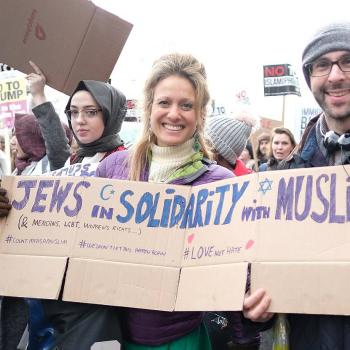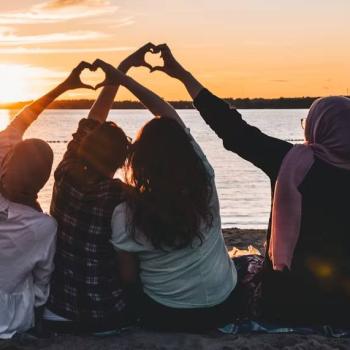 |
|
Constitutionally incorrect
|
On August 13, 2010, the White House sponsored the annual Iftar, a tradition started by President Bush in 2000, commemorating the month of Ramadan. Diplomats, members of Congress, and community leaders from diverse backgrounds celebrated America’s venerable support for religious diversity and freedom.
At the dinner President Obama accurately summarized the Founders’ intent to preserve religious freedom in America, for native-born and immigrant alike. He commendably stated, “As a citizen, and as President, I believe that Muslims have the same right to practice their religion as everyone else in this country. And that includes the right to build a place of worship and a community center on private property in Lower Manhattan.”
Republicans were quick to criticize President Obama for “endorsing” of what has misleadingly come to be known as the “Ground Zero Mosque.” Facing a tough reelection, Senate Majority Leader Harry Reid broke with Obama, joining those who call for the mosque to be built somewhere else. Leading critics claim that they aren’t opposed to building the community center and mosque per se, but rather its location. But their claim is belied by growing protests against mosques in cities across the country, not to mention escalating religious bigotry on the internet and a scheduled Koran burning on September 11. Statements from major figures like Newt Gingrich comparing supporters of the community center to Nazis make it clear that, in fact, all Muslims are being falsely tarred with the brush of extremism.
Some cite polls indicating that the majority of Americans oppose the project, but we should ask ourselves whether opinion polls should be our compass when it comes to the Bill of Rights and the exercise of religious freedom in America? Indeed, such rights were promulgated by the Founding Fathers precisely to shield minority faiths from persecution by those in the majority. In our history we have nevertheless seen the systematic persecution of Catholics, Jews, Mormons and Quakers. But in each case, the persecution was ultimately repudiated and support for the Constitution restored. That elected officials have forgotten this fundamental American principle is baffling given many of their constituents self-identify as staunch defenders of religious freedom.
This paradox illustrates two important lessons.
First, the fundamental right to religious freedom rings hollow for all if it is only applied selectively. There is nothing in the charter of the Cordoba Center that can be cited as an offense to the memory of the thousands of Americans, including Muslims, murdered on September 11, 2001. And if opinion polling is sufficient to stop an otherwise lawful plan to build a community center and house of worship for Muslims, we are setting a dangerous precedent. By the same logic, predominantly Christian communities might similarly be allowed to oppose the building of a synagogue or temple.
Second, the integrity of our constitution depends on a meaningful enforcement of the Bill of Rights. When our founding principles are not put in practice, the rule of law is systemically undermined and our Constitution becomes nothing more than a dated piece of paper.
Critics like Gingrich like to suggest that only when Saudi Arabia allows a church or a synagogue to be built in Mecca should we allow the Community Center to be built. But do we really want to cede leadership on religious pluralism, a hallmark of American freedom, to Saudi Arabia or other Mideast states?
Take for instance the issue of religious freedom in Egypt. Article 40 of the Egyptian Constitution states, “All citizens are equal before the law. They have equal public rights and duties without discrimination between them due to race, ethnic origin, language, religion, or creed.” Yet the 2009 U.S. State Department human rights report highlights the difficulties Christians face in building new churches and renovating existing ones, due in large part to political opposition by a segment of the Muslim majority population. And in Saudi Arabia the state dictates the practice of religion.
The vitriol and specious arguments being made against building the Cordoba Center should serve as a wake up call. Once we start down the slippery slope of compromising religious liberty to accommodate majority opinion or the winds of political opportunism, we proceed at our own peril. Pressuring minority faiths to opt out of their rights under the U.S. Constitution can render those rights meaningless for all.
The freedom to practice one’s religion is a founding principle of our nation and is embedded in the First Amendment. “And that has been upheld ever since,” noted President Obama. Let this not be the day when we focus more on its inscription than its enforcement.
Sahar Aziz is the author of Sticks and Stones, Words That Hurt: Entrenched Stereotypes Eight Years After 9/11 published in the New York City Law Review. She is a Legal Fellow at the Institute for Social Policy and Understanding and serves as counsel to the Bill of Rights Defense Committee. This article was previously published at the blog of the American Constitution Society.















